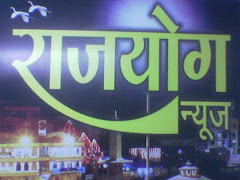Chhattisgarh: Activists worried about Military intervention against Maoists
 While Maoist sympathisers and their overground organizations are already crying hoarse about how the Centre will storm the Maad forests in September, even human rights activists and neutral observers are worried about the collateral damage — the tribal people in the forests of Maad — should the Centre indeed launch the offensive.
While Maoist sympathisers and their overground organizations are already crying hoarse about how the Centre will storm the Maad forests in September, even human rights activists and neutral observers are worried about the collateral damage — the tribal people in the forests of Maad — should the Centre indeed launch the offensive.
Writer and activist Arundhati Roy, who is just back from a visit to the troubled Dantewada region, says there are all telltale signs of an imminent massive military operation in the jungles of Chhattisgarh.
“As soon as the monsoon is over, the government is prepared to storm the forests. When I was there, I saw huge, newly-constructed roads running through the forests. Who are these roads for? Definitely not for the tribal people to walk on. It is for the troops to be moved and once the operation is over, for the steel to be moved to Paradip (in Orissa, the nearest port), from where they will be shipped to China,” she said.
She added that at least 25,000 troops have been trained at the Jungle Warfare School in Kanker and are ready to storm the forests.
“The two people who are behind this are P Chidambaram and National Security Advisor M K Narayanan. We should remember that Chidambaram was the lawyer for Enron. He was on the board of Vedanta, one of the biggest mining companies in the world,” she pointed out.
“Among the first things he said, soon after taking charge as the finance minister during the UPA’s earlier term, was that his vision was for 85 per cent of the country’s population to live in cities. This is how they are chasing the tribals out of the forests for the benefit of the corporates,” she said.
Doctor and activist Binayak Sen, who was recently released on bail after being jailed for two years under the draconian Chhattisgarh Special Public Security Act, said the economy of the Madia Gonds, who inhabit the Maad forests, has already been affected due to the preparations for the Centre’s offensive.
“Their economy has been paralysed. The government must first ensure that the small forest economy, which is the bread and butter for these tribal people, is not crushed. If there is an all-out offensive on the Maoists in the forests, the tribals will be the ones who will be affected the most. The damage will be far worse than what is being caused by the Salwa Judum,” he said.
Roy also said that the tribal people will be hit the hardest if a battle breaks out between the Maoists and the central forces in the Maad forests. “They will be the collateral damage and it will be huge,” she said.
with Ref Rediff Admin (post writer).




